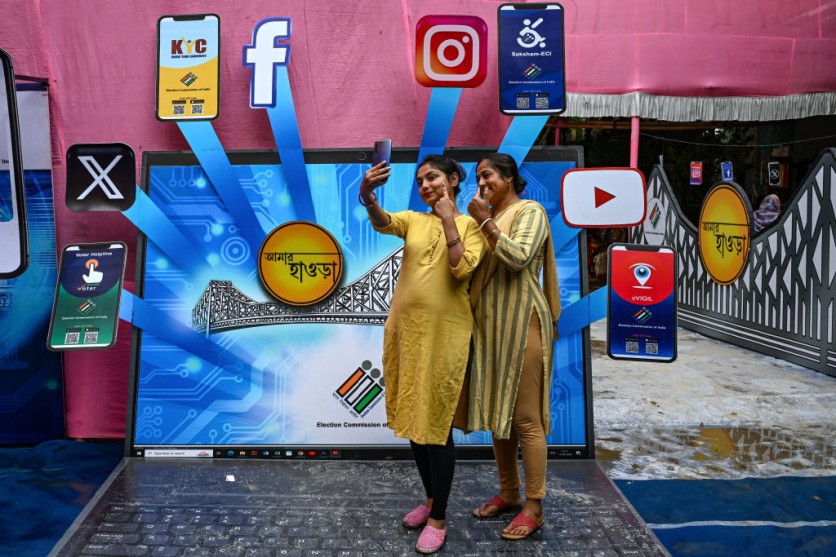An investigation revealed that Meta, the parent of Facebook and Instagram, permitted AI-manipulated political advertising during India's election, which spread misinformation and incited religious violence.
As reported by The Guardian, Facebook accepted advertisements with insults against Indian Muslims, including "Let's burn this vermin" and "Hindu blood is spilling; these invaders must be burned."
The social media giant also allowed the dissemination of false information by Hindu supremacists and political leaders, per the report.
India Civil Watch International (ICWI) and Ekō, a corporate accountability organization, submitted advertisements to Meta's ad library to test its capacity to recognize and remove provocative political material during India's six-week election.
The investigation states that the advertisements were produced "based on real hate speech" and widespread disinformation in India, highlighting the threat of amplifying "existing harmful narratives" through social media platforms.
The study reveals that we authorized 14 out of 22 multilingual advertisements. Modest changes led to the approval of three more commercials. Despite Meta's stated promise to stop AI-generated material before the election, its algorithms missed the AI-manipulated pictures in permitted advertising.
Meta banned five commercials for violating its hate speech and violence criteria, including one that misrepresented Modi. The 14 Muslim-targeted advertisements also violated Meta's hate speech, bullying, disinformation, and incitement regulations, the investigation said.
Ekō activist Maen Hammad accused Meta of benefiting from hate speech, claiming that the social media juggernaut will "gladly take" funds from "supremacists, racists, and autocrats" that want to use the platform to spreadd hate speech and conspiracy theories.
A Meta spokesperson said that elections or political commercials must be authorized and follow the law. Additionally, the tech corporation eliminates anything, including advertisements, that violates community standards, regardless of the origination process.
Meta's worldwide affairs president, Nick Clegg, called India's election "a huge test" for the Facebook and Instagram parent, saying they had prepared well for the event. Meta claims that its native and third-party fact-checkers now cover 20 Indian languages.
Read Also: Google Wallet Expands to India, Offering Boarding Passes, Loyalty Cards; Google Pay Remains

YouTube Also Accused of Allowing Spread of Misinformation in India
Meanwhile, YouTube is another key misinformation outlet in India, say experts. Global Witness and Access Now researchers developed 48 fake English, Hindi, and Telugu ads with misleading voting information or calls for violence to test the platform's policies.
An ad falsely claimed India had raised its voting age to 21, another said women could vote via text, and a third advocated for the force at polling booths, as reported by AP News.
According to Global Witness investigator Henry Peck, YouTube is authorized for all of Global Witness' advertising. He said that the popular video streaming platform permitted the advertisements to run.
Google, which owns YouTube, criticized the study, saying it had several ways to discover advertising that broke its guidelines.
India Elections Enters 5th Phase
The Information and Technology Ministry of India has ordered social media firms to delete deepfakes. Experts argue the lack of AI and deepfake legislation or laws makes it impossible to solve the issue, leaving voters to decide what is true.
As India's elections' fifth phase started today, a 17-year-old boy was arrested after a video of him voting for the BJP eight times went viral. Rivals called it voter fraud, per Al Jazeera.
On May 3, Indian National Congress social media chief Arun Reddy was detained for doctoring a video of Home Minister Amit Shah, a major ally of Prime Minister Narendra Modi, discussing abolishing affirmative action for specific communities, per Bloomberg.
Seven stages of voting are scheduled between April 19 and June 1. The elections will conclude on June 1 and count on June 4.
Related Article: Is Superintelligent AI Safe? Top Experts Raise Red Flags on OpenAI


![Apple Watch Series 10 [GPS 42mm]](https://d.techtimes.com/en/full/453899/apple-watch-series-10-gps-42mm.jpg?w=184&h=103&f=9fb3c2ea2db928c663d1d2eadbcb3e52)


